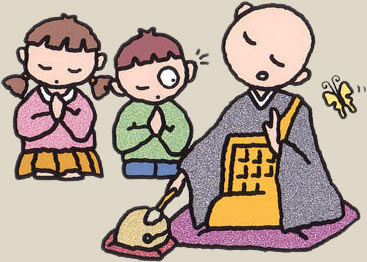As a general rule, the Japanese have a very laissez faire attitude when it comes religion, blending Shinto and Buddhism so seamlessly that no one thinks it odd that most homes have both a butsudan, or a Buddhist altar, and a kamidana, a miniature Shinto shrine made of wood. It’s common for Japanese Christians to blend these cultural themes into their daily lives, too, having a Buddhist altar which they use to remember their ancestors even as they attend the local Catholic or Baptist church regularly. In the 18+ years I’ve lived here I’ve met only one Japanese Christian who told me he didn’t engage in Shinto or Buddhist cultural activities such as the traditional prayer for good luck in the New Year, and I once taught English to a girl who told me her family was Shinto, and therefore they never went to Buddhist temples to attend events or ceremonies. The vast majority of Japanese enjoy a great deal of spiritual flexibility, and the result is, I think, a very positive one for the country.

Happily, the Japanese are always very free and flexible when it comes to religeon.














